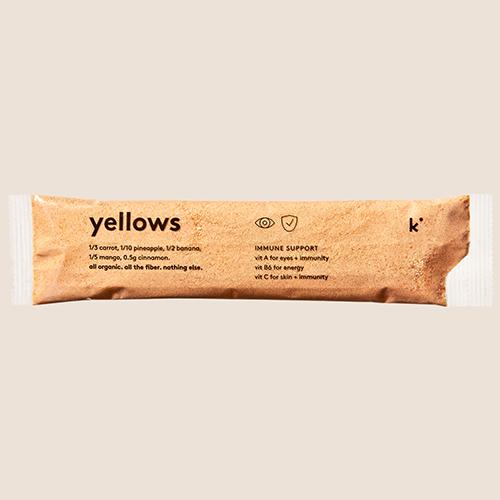So what’s the deal: are carbohydrates bad for you?
“Carbs are the enemy” is a common refrain these days… which sucks! We’re here to speak up for this much-maligned macronutrient.
“Carbs are the enemy” is a common refrain these days… which sucks! We’re here to speak up for this much-maligned macronutrient.
Anti-carb messaging is hard to avoid, and it can really get inside your head. If you’re starting to eye potatoes with suspicion and avoid apples, we’d love for you to think again. Carbs are the primary source of fuel for our body and brain, and along with fats and proteins, are one of the three macronutrients your body needs to sustain itself. There’s no need to be afraid of them – and anyone who tells you otherwise is probably trying to sell you something that’s too good to be true.
Weight-loss diets achieve their aims by restricting calorie intake – full stop. One of the simplest ways to do that is to cut out or drastically reduce an entire food group: it’s a very easy rule to remember, so the diet sells. In the 70s and 80s, fat was the enemy and low-fat, high-carb diets were all the rage. Since the Atkins Diet rose to prominence in the early 2000s, the tide has turned back in favor of fats and against carbohydrates. But the problem with cutting out a whole food group is that it’s totally unsustainable. Initial weight loss is usually reversed over time, as the body reasserts its nutritional needs. And one of the most fundamental of those needs is for our good friend, carbohydrates.
How do carbs work?
Once ingested, carbohydrates are broken down into glucose, which is absorbed by our blood and used by our bodies whenever they require energy for anything from reading the words in this post to knocking out a rigorous workout class. If your body has enough glucose to fuel itself at a given moment, some of that unused glucose can be converted to glycogen and stored for later.
But your body can only keep so much glycogen, and that’s where carbs get their negative reputation. When your body has all the glucose it needs and its glycogen stores are full, it does what it does with any excess macronutrients and converts surplus carbs into fat.
The above is true for all carbohydrates. But not all carbs are created equally.
Metabolic differences and underlying health conditions aside, there are numerous factors that play into how our bodies process carbohydrates. Highly processed foods like white flours, pastas, and breads and flours are often viewed as the only carbs. This ignores extremely nutritious sources of carbohydrates like whole grains, legumes, fruits, and veggies, which are all loaded with vitamins, nutrients, and fiber.
Fiber from foods like these slows down the absorption of glucose into the bloodstream, reducing the likelihood of a spike in blood sugar. This is what keeps you from feeling a sugar rush or crash afterward. Additionally, aiming to consume 25g of fiber each day can do wonders for your gut health.
What happens when you cut out carbs?
In the absence of sufficient glucose, your body needs a backup source of energy, like that stored fat we were talking about early. To use fat for energy, your body goes through a process called ketogenesis, which produces a fat-derived, alternate energy source: ketones. A buildup of ketones in the blood results in a condition called ketosis, which can cause headaches, weakness, dehydration, dizziness and irritability. (If you’ve heard about the “keto flu,” this is it. As a rule of thumb we don’t recommend diets that simulate illness.)
Additionally, replacing carbs with fats and protein has the potential to increase your intake of saturated fat, which can raise the amount of cholesterol in your blood.
In the long term, cutting carbs not only deprives your body of its preferred source of energy, but it can also result in a diet low in fiber, which you don’t want. Studies show that high-fiber foods can reduce cholesterol levels, and lower the risk of cardiovascular disease, type-2 diabetes, and colon cancer. (Plus, if you’re only taking in fat and protein, constipation is a very likely outcome!)
But don’t sound the alarm bells on fats or proteins either! Your body needs those, too. In fact, if you take anything away from our impassioned defense of carbs, besides the fact that they are not the enemy, it should be that no food should be viewed in such an “avoid at all costs” light. All foods fit, in moderation and with balance.
there's more good content where that came from
